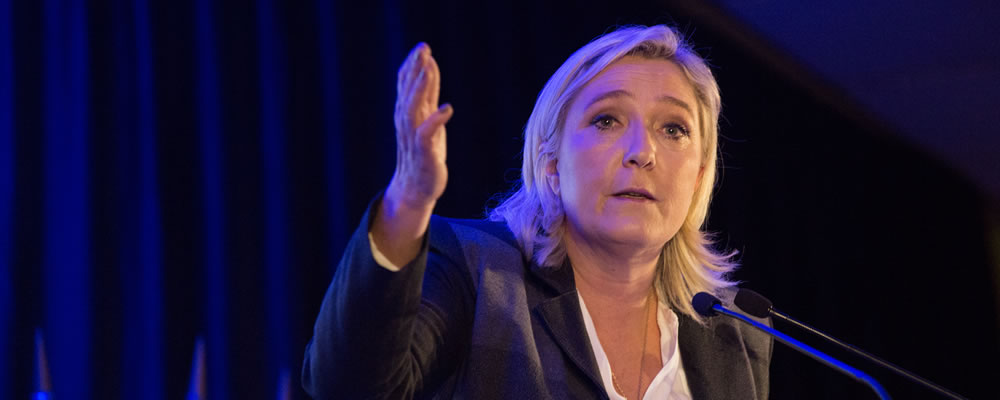The Euro Australian Dollar (EUR AUD) exchange rate has fallen over half a cent since the start of trading yesterday as Marine Le Pen’s French Presidential campaign was handed another boost.
This boost came in the form of former French Prime Minister Alain Juppe, who announced on Monday that he would not be seeking to run for the Presidency in June.
Juppe, who served as France’s prime minister from 1995 to 1997, was seen as a possible contender to replace the beleaguered Francois Fillon as the centre-right candidate after Fillon was hit by a scandal involving using public funds to pay his wife for non-existent work.
Recent polls suggested that Juppe would have comfortably beaten the Eurosceptic Le Pen in the first round of the election, preventing her from getting anywhere close to the presidency and dashing her hopes of pulling France out of the EU.
The Euro fell as investors fear that should she be elected, her plans to hold an EU referendum could see the second largest economy in the Eurozone also leave the currency block, and leave the path clear for others dissatisfied members to follow.
While polls still suggest that Le Pen will fail to win enough support in the second round, markets are cautious following the major upsets of both Brexit and Trump last year.
The Euro also suffered this morning following a worse than expected drop in German factory orders.
Figures show that orders fell at their fastest rate in eight years, falling 7.4% in January – far worse than forecasts that they would only drop by 2.5%.
The decline was attributed to a fall in demand in both Germany and the rest of the Eurozone, in which orders fell by 7.8%, a possible sign that recent growth in the bloc is not as strong as previously suspected.
Carsten Brzeski at ING said;
‘Today’s disappointing data is also a good reminder that the German industry is having more problems returning to full speed than buoyant sentiment indicators have been suggesting.’
However the sharp downturn is not completely disastrous for the single currency as German factory orders have a habit of fluctuating quite wildly and will likely rebound quickly.
Meanwhile, the Australian Dollar’s advance was slowed somewhat by the latest Reserve Bank of Australia (RBA) monetary policy meeting.
While investors had expected policymakers to leave interest rates unchanged, they were disappointed by the neutral tone of Philip Lowe in his post-meeting speech.
Economists had hoped that the recent surge in GDP, which led to Australia being the fastest growing major economy last year, would prompt the RBA Governor to offer a more hawkish outlook.
However, Lowe pointed to risks in both the housing and labour markets as reasons to be more cautious towards monetary tightening, with employment being of a particular concern as recent growth appears to be largely concentrated in part time jobs.
Meanwhile Lowe’s scepticism towards the housing market may be supported by Wednesday’s Australian Home Loans figures as mortgages are predicted to have tumbled from 0.4% to -1% at the start of 2017.
The Euro may also rally tomorrow morning as German Industrial Production is expected to have rebounded from -3.0% to 2.5% in January.
However, the single currency could meet some psychological resistance this week ahead of the Dutch elections on the 15th as markets wait to see how well far-right candidate Geert Wilders fares, in what will be the first real test of a populist movement in Europe.
Current Interbank Exchange Rates
At the time of writing the EUR AUD exchange rate was trending around 1.39 and the AUD EUR exchange rate was trending around 0.71.



